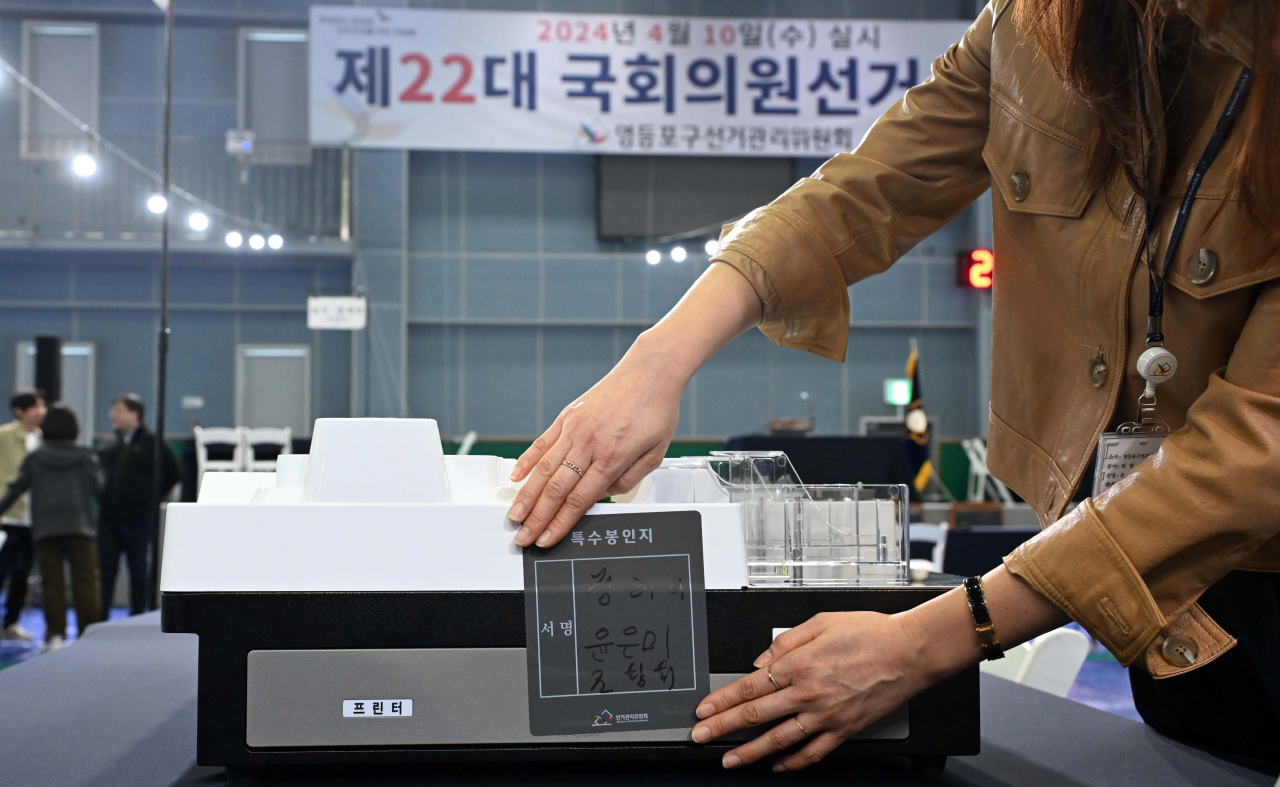 |
An official of the National Election Committee checks a voting equipment prior to the parliamentary elections in this April 9 file photo taken in Seoul. (Lee Sang-seob/The Korea Herald) |
An umbrella group of local polling companies on Wednesday recommended the government to ban the use of automated response systems in polling for major elections.
In a press release, the Korea Research Association said the National Election Commission should no longer use the ARS in opinion polls, saying the system is no longer a scientific method of polling.
"There recently have been controversies related to allegations about the opinion polls (of elections) supposedly being rigged, and the polls concerned have all used ARS. "The association (KRA) have deemed the ARS an unscientific method since 2014 and banned its use, and we expelled any members that still use ARS," the association said in the press release.
The association has 35 members as of now, which include the biggest pollsters in the country such as Gallup Korea.
Unlike other phone-based polls where the surveyor conducts a short interview with the respondent, ARS-based polls require each respondent to voluntarily submit their own information. This means there is a greater risk of the respondent putting in false information, such as answers regarding gender or age.
The KRA urged the Deliberative Committee on Public Opinion Polls Relating to Election, affiliate of the NEC, to come up with a realistic standard to expel what it called unscientific survey methods and unqualified polling companies.
Disputes concerning polling methods have risen in recent years, particularly after the polls related to the major election failed to predict the results.
The parliamentary election in April was widely expected to end with the opposition bloc winning at least 200 of the 300 seats in the National Assembly, but the opposition ended up with a far less commanding victory.
Such disparity between the polls and the actual results were even more profound in the 2016 parliamentary election, when the general consensus was that then-ruling Saenuri Party would easily take a majority, with between 157 to 175 wins. The main opposition Democratic Party (now Democratic Party of Korea) ended up just edging out the ruling party with a 123-to-122 victory.
An East Asia Institute report in April indicated that inaccurate polls may be linked to the faltering voter confidence in the fairness of the elections themselves. The researchers conducted a survey on 1,528 adults about the 2020 parliamentary election, in which then-ruling liberal Democratic Party of Korea took a commanding 163 seats to squash 84 seats won by then-main opposition United Future Party, forerunner of the People Power Party.
The survey showed that 39 percent of the respondents believed that there had been some level of election rigging, with more than half of the supporters of the conservative party (55.1 percent) saying the election was rigged. Even 36.2 percent of the supporters of the DP said they believed the election results had been rigged.




![[Herald Interview] 'Trump will use tariffs as first line of defense for American manufacturing'](http://res.heraldm.com/phpwas/restmb_idxmake.php?idx=644&simg=/content/image/2024/11/26/20241126050017_0.jpg)

![[Herald Review] 'Gangnam B-Side' combines social realism with masterful suspense, performance](http://res.heraldm.com/phpwas/restmb_idxmake.php?idx=644&simg=/content/image/2024/11/25/20241125050072_0.jpg)
![[Health and care] Getting cancer young: Why cancer isn’t just an older person’s battle](http://res.heraldm.com/phpwas/restmb_idxmake.php?idx=644&simg=/content/image/2024/11/26/20241126050043_0.jpg)